Science, technology, engineering, and math (the "STEM" subjects) are important areas of learning for any student. According to the Bureau of Labor Statistics, there were 8.6 million STEM-related jobs in the United States, and that figure is climbing.
Children have a natural curiosity. They love to experiment, analyze, build and create connections between what they already know and the fascinating world around them. Fostering an early interest in STEM can build a strong foundation for your child's math and science skills for years to come.
If your child is interested in science, tech, engineering or math, there are a number simple ways to hone their skills at home.
Getting started doesn't require a Ph.D., a ton of time, or sophisticated equipment — just a new perspective for finding real life examples of STEM concepts and an entertaining way to present them. Here's some inspiration to get the ball rolling!
Counting Cups
The basis of all things math begins with number recognition and understanding the corresponding quantity. Turn snack time into learning time with an easy but entertaining counting and sorting game.
Set out empty cupcake liners in two rows of five, with a number between one and 10 beneath each cup. Challenge your child to put the correct number of snack pieces into each category (try using chopsticks to keep little hands busy and to develop even better coordination).
How to Play Double Solitaire
Double Solitaire Double Solitaire also called Klondike Solitaire is the exception to the solo-game rule that we've come to learn. I had to include it, though, because it is how I learned to play Solitaire (not to mention the antics of my Solitaire-crazed parents). Read More
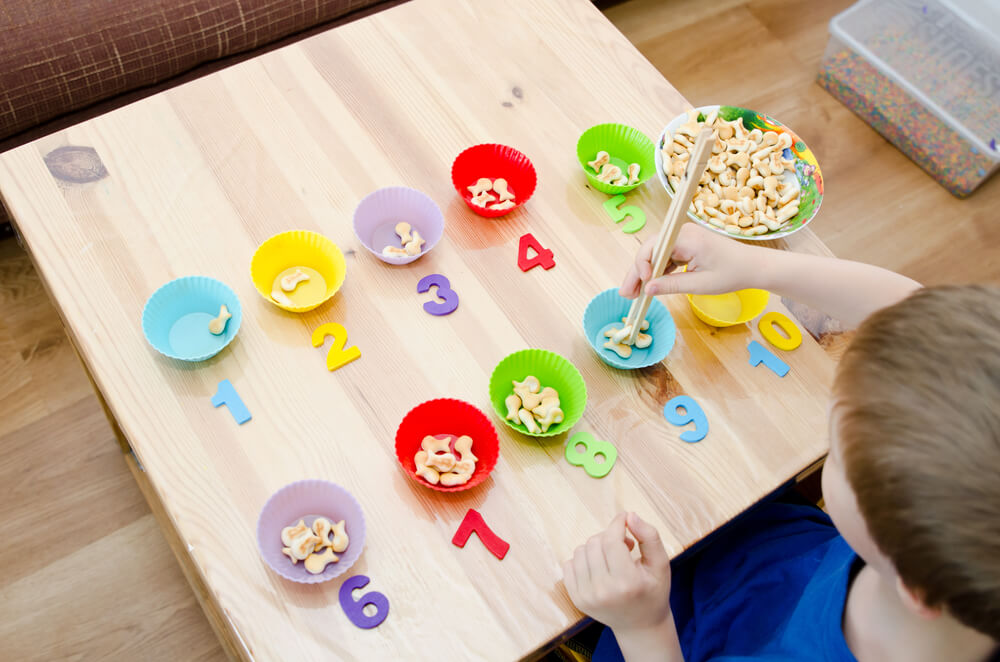
DIY Marble Run
It's never too early to teach kids concepts like cause and effect, energy and gravity. Scientific inquiry is developed through building, reconfiguring and adapting. See it all in action with a do-it-yourself marble run built with stuff from around the house.
Put your mini-engineer to work with a pile of paper towel and toilet paper tubes. Attach tubes to the wall horizontally and diagonally with strips of masking or washi tape (or any kind that's flexible and easy to remove), and experiment with creating different configurations while testing the effects on a marble's travels. Discover which routes are faster or slower, and hypothesize why.
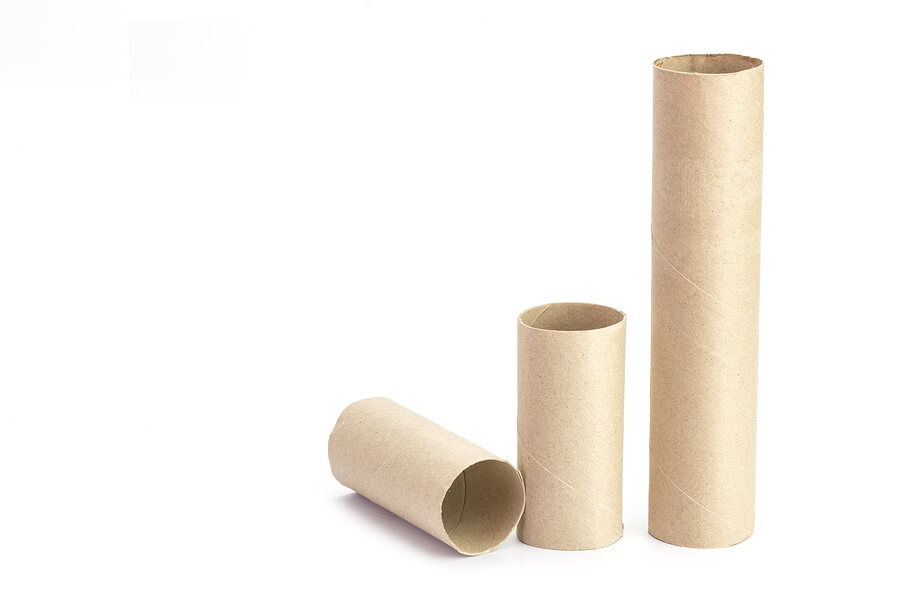
Fun Math App
Technology can be a blessing and a curse when it comes to kids. Although it's an amazing tool for learning, it's also an endless diversion. The upside to technology is that it offers the ability to introduce new material in an entertaining and engaging way. Put that interest to work with educational apps.
The Tiggly Chef: Preschool Math Cooking Game is an iPad counting app that brings together aspects of real-life cooking and a colorful virtual world full of number-related challenges. Improve your child's motor skills, language skills, and executive functioning with silly addition and math challenges. He'll be so glad for additional device time, he won't even realize he's learning!
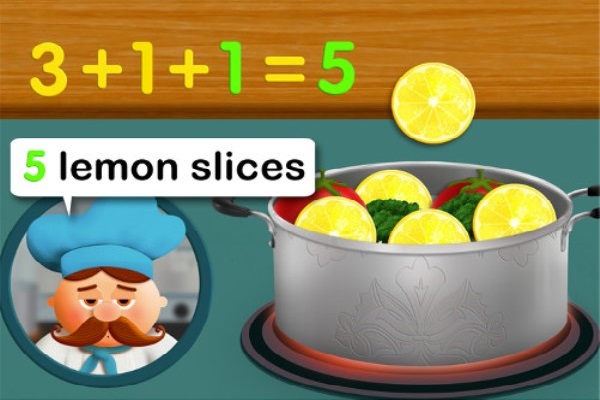
More: 21 Free Educational Apps for Kids
LEGO Pattern Blocks
Build in some learning time with LEGOs! Identifying and creating patterns with these colorful bricks helps children learn to make predictions about what should happen next. Predictive ability is not only important in math, but also in broader social development, as patterns and routines help children find order in the seemingly disorganized world around them. Turn your next LEGO session into pattern prediction practice with some new ground rules on play.
Create a pattern using LEGOs by alternating colors or sizes, and ask your child to copy what they see using their own blocks. Increase the level of difficulty by going from an A-B-A-B pattern to A-B-B-A or using more than two variables. You can also make patterns that include blank spaces and invite your child to determine what's missing. 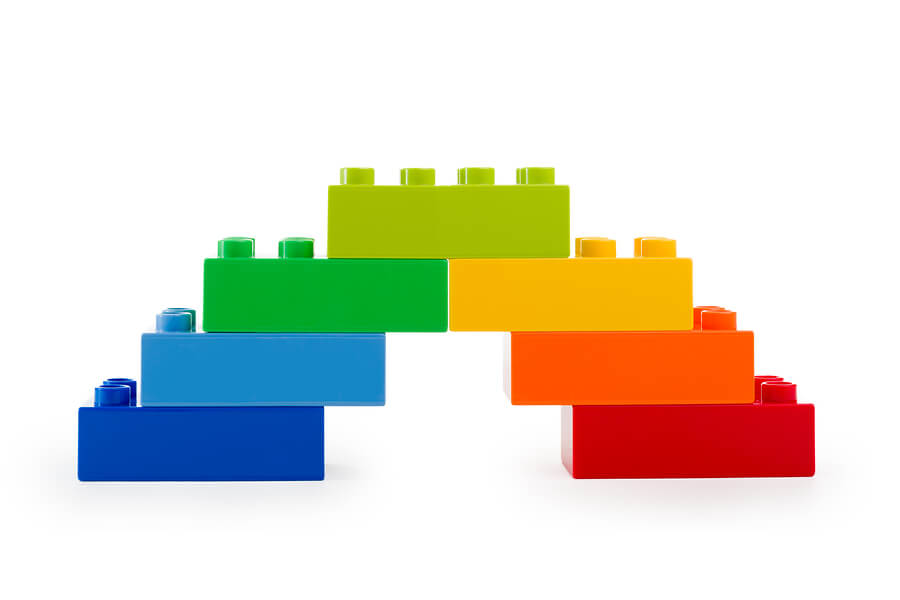
Dice and Dominoes
Make your own numbers game using dice and dominoes! Counting and adding up the dots helps children compare quantities and begin to recognize the relationship between numbers. She'll also get familiar with identifying "more than" and "less than"—another important mathematical building block.
It's easy! Simply have your child roll the dice and then search for a domino with a sum of the corresponding number. For instance, if a three was rolled, she would need to find a domino with one dot on one end, and two on the other for a total of three. Give her points for each correct answer and encourage her to beat her previous score from the last game.
More: Top 10 Math and Science Apps for Your Whiz Kid!
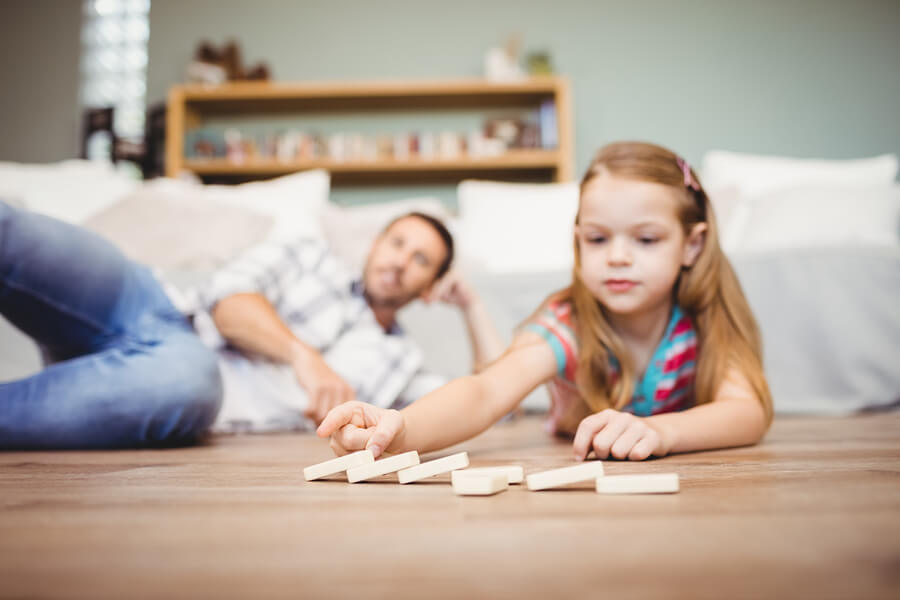
It's never too early to getting your kids interested in STEM activities. Starting with small, simple activities will give them the foundation they need to grow their STEM skills.


